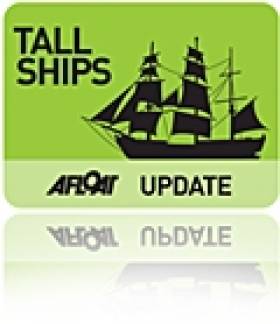Displaying items by tag: OYT
Ocean Youth Trust 'Reviews Procedures' in Wake of Lord Rank Sinking
Following the sinking of Ocean Youth Trust's (OYT) Lord Rank on June 8th and the UK's Marine Accident Investigation Board's subsequent examination, OYT has taken 'a number of actions to ensure the future safe operation' of its vessels. This includes 'a review of its procedures and their implementation on board', according to an MAIB report HERE.
The report says The Lord Rank was engaged in a charity fund-raising event last June 8 and was scheduled to call at a number of Northern Ireland ports. The vessel completed her fund-raising activities at Ballycastle and departed port at 2100 with three crew and three passengers on board. The next port of call was Portrush, a passage of about 3 hours under power. No passage planning was undertaken. On clearing the breakwater, the skipper ordered the helmsman to head in a northerly direction. About 10 minutes later he ordered the helmsman to alter course to port and head towards a visual reference point. No further position monitoring was undertaken. The vessel went aground on Carrickmannanon Rock at about 2123. The skipper then broadcast a 'PAN PAN' message on VHF radio that was acknowledged by the Coastguard. A rescue operation involving a helicopter, an inshore lifeboat and an all weather lifeboat ensured that the crew and passengers were landed safely ashore. STV Lord Rank subsequently sank.
The Marine Accident Investigation Branch (MAIB) examines and investigates all types of marine accidents to or on board UK ships worldwide, and other ships in UK territorial waters.
The Chief Inspector of Marine Accidents has written to Ocean Youth Trust Ireland emphasising that 'professional standards need to be maintained at all times'.
The OYT's agm will be held at Balyholme Yacht Club in Bangor, Northern Ireland on October 18th at 7pm.






























































